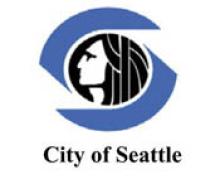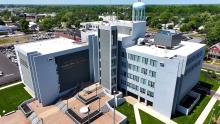By
on

Seattle will choose its new mayor today in a race that was thrust into an unexpected media spotlight following the Washington Post story on Comcast contributions to the challenger. We covered it early from the perspective of how Comcast wants to send a message to other mayors that may challenge its effective monopoly.
However, it bears noting that mayoral candidate Murray was mostly caught in the crossfire. He had been silent on broadband issues (which should raise some eyebrows given its importance to economic development, education, and quality of life) but after the WaPo story, he proclaimed that he supported the gigabit challenge to Comcast.
Just because Comcast wanted to buy the challenger doesn't necessarily mean that Murray was for sale or would do Comcast's bidding in office. But we are now learning that Comcast has bought 12 meals for Murray as part of their lobbying effort. If nothing else, these stories should be a good reminder of who calls the shots in American politics. As long as we encourage firms to spend big money on elections, the biggest corporations will continue to have far more influence over our government than we do.
Back to Seattle - lest one think this is a clear cut case of pro-competition Mayor McGinn vs. Comcast puppet Murray, a prominent tech blogger in Seattle sets us straight regarding the nuance and complications of such a simple analysis. Brier Dudley starts be reminding us that most people are voting on issues aside from Internet access and continues with:
McGinn simultaneously abandoned years of city planning to build a citywide broadband network and bring fast, affordable service to everyone. Instead, McGinn opted to part out the city’s fiber-optic network assets, offering pieces here and there to telecom companies. That approach basically makes it impossible for anyone to use those assets for a citywide service, reaching everyone. Most likely it will result in cherry-picking of lucrative pockets of the city. The city said it couldn’t afford to build its own broadband network. Then McGinn miraculously found enough financing capacity to fund a new basketball arena.I would add that McGinn seemed more enthusiastic than some of the City Council, notably Bruce Harrell, when it came to a city owned fiber network. Additionally, the city owned electric utility has refused to cooperate beyond basic efforts on expanding access to this essential infrastructure. Brier Dudley finishes with gusto, including this:
McGinn cast himself as the alternative to Comcast broadband four years ago, promising to bring better broadband to everyone. But after taking office, he chose to partner with Comcast and other telecom companies. This ended hopes of using the city fiber-optic network assets as the foundation of a municipal broadband network that truly would have given residents an alternative.The article is more anti-McGinn than I think is warranted given the challenges any big city faces when it comes to broadband, but this is certainly closer to the truth than any simple claims that there is an easy choice for better Internet access. The question for everyone outside Seattle is this - what are you doing to make Internet access a political issue to force candidates to stake out a solid position on the matter? In my Saint Paul, Minnesota, broadband is not even a tiny issue, where our Mayor is the brother of Comcast's top lobbyist in the state and he has killed any efforts that could challenge Comcast's dominance. We need to do better at making this an issue in all elections.
Geoterm







